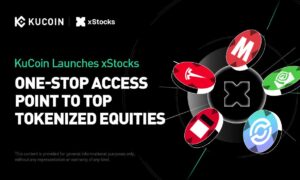Investing in index funds and ETFs can seem like a no-brainer, but the road to success isn’t always smooth. Even seasoned investors can stumble into common traps that eat away at returns. In this guide, we’ll explore practical tips to help you sidestep these pitfalls, ensuring your investment strategy is both smart and resilient. Visit immediate-helix.com and learn indepth about investing to stay educated and on the safer side.
Diversification Done Right: Avoiding Over-Concentration in Your Portfolio
When we talk about diversification, it’s like not putting all your eggs in one basket. Imagine if all your investments were in one company, and that company tanked—you’d be in quite a pickle. But what if I told you that too much diversification could also be a bad thing? Yep, it’s true.
The goal of diversification is to spread your risk across different types of investments, such as stocks, bonds, and real estate, or even across various sectors like technology, healthcare, and finance. But there’s a fine line here. If you over-diversify, your portfolio might start looking like a wild shopping spree, with small chunks invested everywhere. This could dilute your returns, making it hard for any single investment to really move the needle.
Let’s put it into perspective: If you have 100 stocks in your portfolio, each one would have a minimal impact on your overall returns. So, even if a few of them perform exceptionally well, they won’t boost your portfolio much.
On the flip side, if you’re too concentrated—say, you’re heavily invested in tech stocks—you’re playing with fire. One tech downturn, and your portfolio could take a serious hit.
The Role of Emotional Discipline: Avoiding Impulsive Investment Decisions
We’ve all been there—watching the market rise and fall can feel like riding a roller coaster. But here’s the thing: Just because you’re strapped in doesn’t mean you have to scream at every drop. Emotional discipline is about staying cool, calm, and collected, no matter what the market is doing.
Imagine you’re at a casino (not that I’m recommending gambling with your investments!). You see someone hitting a jackpot, and suddenly, you’re tempted to throw all your chips on the table. The same thing happens in the stock market. When you see a stock soaring, it’s easy to get caught up in the excitement and want to jump in. Or worse, when the market is dipping, panic sets in, and you’re itching to sell off your investments before things get worse.
But here’s the kicker: Acting on these impulses is usually where people lose money. Markets go up and down—that’s just the nature of the beast. Successful investors know that the best strategy is often to sit tight and stick to their plan. Easier said than done, right?
- Smart Investing: Using Index Fund Calculators to Navigate Index Funds and ULIPs
- Analyzing Common Causes Behind Bitcoin Price Dips
Evaluating Performance: Beyond the Surface Numbers
It’s easy to glance at the annual return on your investments and call it a day. But if that’s all you’re doing, you might be missing out on the bigger picture. Performance isn’t just about how much your investments grew last year—it’s about understanding the ‘why’ behind those numbers.
For starters, compare your returns to a relevant benchmark. Let’s say you’ve invested in a tech-heavy ETF. You’d want to measure its performance against a tech index, not the overall market. If your ETF underperformed the index, that’s a red flag—you might be paying more for less.
Another thing to watch out for is volatility. Did your investment shoot up one year and tank the next? Wild swings might indicate higher risk, which could be a problem if you’re nearing retirement or need stability. Looking at metrics like the Sharpe ratio can give you a better sense of whether you’re being adequately compensated for the risk you’re taking on.
Now, let’s talk about dividends. Are you reinvesting them or pocketing them? Reinvesting can supercharge your returns through the magic of compounding, but only if you’re patient. And don’t forget about taxes. A fund that’s performing well but is tax-inefficient could leave you with less in your pocket after Uncle Sam takes his cut.
Staying Informed: The Importance of Continuous Learning and Adaptation
Investing isn’t a ‘set it and forget it’ game. The market is like a river—it’s always moving, always changing. And if you’re not keeping up with the currents, you could find yourself swept away. Staying informed is your life raft in this ever-shifting environment.
So, how do you stay on top of things without getting overwhelmed? First, focus on the basics. Subscribe to a few trusted financial news sources and skim the headlines daily. I’m not saying you need to know every little market move, but being aware of major economic trends, interest rate changes, or significant global events can help you make more informed decisions.
Another key point: Don’t just rely on the news. Learn the fundamentals of investing. Books, podcasts, and even online courses can be great resources. The more you understand about how markets work, the better equipped you’ll be to adapt to changes. For example, if interest rates are rising, knowing how that impacts bonds or mortgages can help you adjust your portfolio accordingly.
And don’t forget to seek advice from professionals. Financial advisors can provide personalized insights based on your unique situation. They might catch something you’ve missed or offer a new perspective that helps you make better choices.
Conclusion
While investing in index funds and ETFs is straightforward, avoiding pitfalls requires a mix of knowledge and discipline. By staying informed, diversifying wisely, and keeping emotions in check, you can build a portfolio that not only survives but thrives in any market condition. Remember, consistent learning and smart decisions are your best allies in the journey to financial success.
Disclaimer: This is promotional marketing content. The presented material by no means represents any financial advice or promotion. Be sure to research and acknowledge the possible risks before using the service of any trading platform.



































